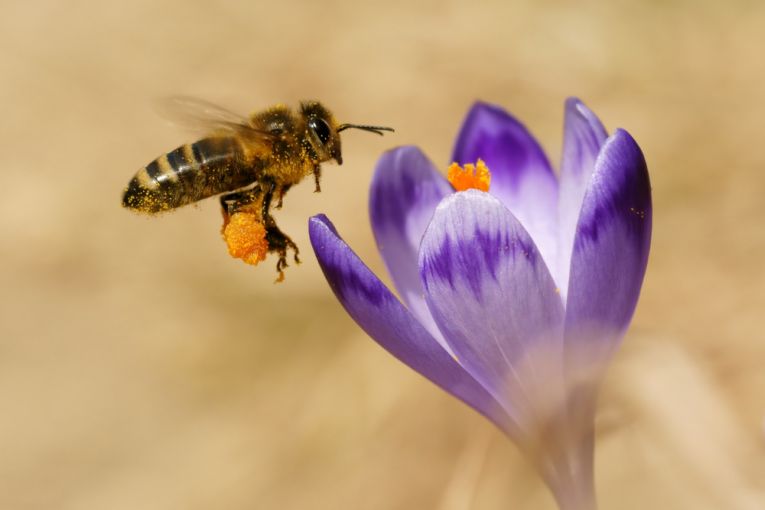Erich YT Nakasu and several colleagues collaborated in testing the effects of spider venom-based pesticides on honeybees, with lethal effects on caterpillars, beetles, flies and bugs already observed. They work at The University of Newcastle upon Tyne, The Ministry of Education of Brazil, The UK Food and Environment Research Agency in York and Durham University. Paying full attention towards the efficient pollinators of agricultural crops is desirable given the terrible effects of pesticides such as neonicotinoids on their behaviour and activity. Their paper is to be found in the Proceedings of the Royal Society B as - Novel biopesticide based on a spider venom peptide shows no adverse effects on honeybees.
The honeybees, Apis mellifera mellifera from York were maintained at Newcastle University during 2012 and foraged freely until being removed indoors for the winter, where they had free access to the outdoors via a pipe. The insecticidal peptide is funnel web spider, Hadronyche versuta venom mixed with crocus lectin carrier protein to enable it as an oral pesticide. Sucrose solutions containing the pesticide were given to anaesthetised bees by injection, oral and by contact. And the effects measured as the individual bees recovered with access to 50% sucrose solution.
The importance of such testing is shown in the lack of change in olfactory learning and memory formation in the adult foraging bees. When larval and adult haemolymph were sampled, the fusion protein pesticide was found to be present, proving it had passed through the gut. It had also reached the brain, so any toxic effect could have been observed in the behaviour. The fusion molecule had been successfully degraded in the gut of larvae but not in the adult.
When the bees were actually injected with the pesticide, 17% died within 48 hours. Caterpillars of Lepidoptera (butterflies and moths) had a 90-100% fatality with the same treatment. The bee brain must be much more resistant to the processes, or the CNS of the 2 insects are quite different in their reactions. The doses given were greater than expected field exposure for the bees, as the pesticide would be applied as a spray. Nectar and pollen would contain low doses within the bee diet.
Neonicotinoids and organophosphate pesticides both impair the learning abilities and associate olfactory cues with a sucrose reward. This spider pesticide seems an adequate attempt to displace the old wide-action chemicals with much more specific actions. No adverse effects on Apis mellifera from a high dosage of the Hv1a/GNA formulation of venom and crocus lectin were observed. The fusion protein is successfully degraded only by bees. This also means that accumulation is impossible, avoiding the age-old problem of build-up in the food chains.
There only remain the important bumblebees and parasitoid wasps. If they are affected by the fusion protein, then it seems likely that we have to go back to the drawing board. These insects are often more important than the domesticated honey bees, as they function completely without any farmers' input in many regions.










